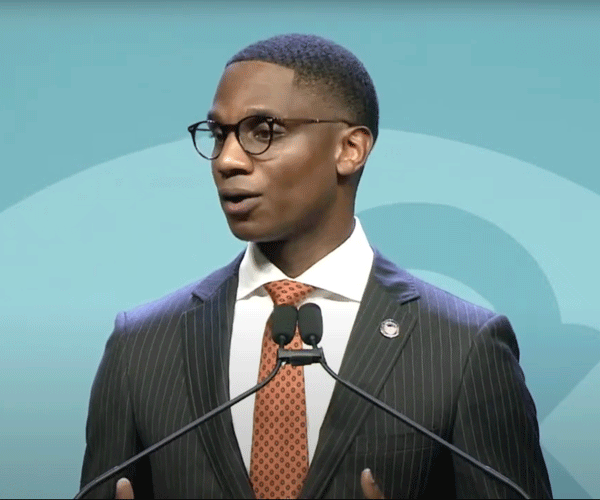Rhonda Y. Williams wasn't going to wait any longer.
As one of three co-chairs of the 13-member Cleveland Community Police Commission, she had been bugging her fellow committee members to read a book since their September swearing-in. Chock-full of best practices, The New World of Police Accountability is a guide for fairer policing.
But despite her insistence, nobody was biting.
"I'm like, 'I'm just going to have to buy this one for y'all,' " she says. By their second public meeting in October, each commissioner had a copy.
Williams isn't content to wait around for change. She enacts it.
A history professor at Case Western Reserve University, she is one of Cleveland's most outspoken proponents of police reform. "I want transformation," she says. "I don't want just reform and tinkering of a system that remains unjust."
A Baltimore native, Williams studied journalism as an undergraduate at the University of Maryland, College Park and then worked as a reporter for the Charlotte Observer, where she covered everything from crime to hurricanes. "As a journalist, I found myself recording history day by day," she says. "But I found myself really constrained in what I was able to do in terms of explaining the roots of what I was seeing."
Williams turned to graduate school, earned her doctorate at the University of Pennsylvania and took a job at CWRU in 1997. Her academic work blends elements of history, sociology and journalism. In her book The Politics of Public Housing: Black Women's Struggles Against Urban Inequality, Williams weaves letters and interviews with women such as Alverta Parnell, who organized resident committees in Baltimore's public housing projects, with more traditional primary sources.
"My core calling," says Williams, "is about community voice, community input, people telling their stories and listening truly, authentically to everyday people's experiences."
That mindset permeates her speech. At commission meetings, she introduces herself by saying, "I'm Rhonda Williams, but people in the community call me Dr. Rhonda."
Williams founded CWRU's Social Justice Institute in 2008, which marshals academics from disparate specialties like nursing and business to tackle societal problems. Her activism and academics are interrelated. One of her classes, called City as Classroom, requires students to do activism in the community. "I've always been in the middle of being a scholar-activist, an activist scholar," she says.
As a member of the Cleveland 8, she signed a citizen affidavit in an attempt to force the city to issue arrest warrants for the officers who fatally shot Tamir Rice.
Prior to the consent decree, an agreement regarding police reform between the city and the Justice Department, Williams helped author a list of recommendations submitted to U.S. attorney Steven Dettelbach that called for wide-ranging reforms such as an independent prosecutor for police misconduct cases to better police equipment.
The consent decree offers a broad mandate for change, she says. "There will be some who will be narrow constructionists. I'm not one of those."
Williams' activist mentality is already shaping the Cleveland Community Police Commission. She pushed to end each meeting with a public comment period and is drafting a city charter amendment that would overhaul the Civilian Police Review Board and Office of Professional Standards. But Williams also readily points out a weakness in the commission's role — it can only recommend policy, not implement it.
"My hope is that there is some real desire to make change," she says. "But if you don't have that, and you don't have the people, then stuff is just going to happen the same old way. That's what history shows you."
Both Cleveland Mayor Frank Jackson and police chief Calvin Williams have expressed support for the commission's work. But for the usually action-oriented Rhonda Williams, this is one change she can't make herself.
"My hope is that Mayor Jackson is dedicated to reform. My hope is that chief Williams is dedicated to reform. My hope is that people who are in positions of power are dedicated to reform," she says. "I'm in wait-and-see mode."




